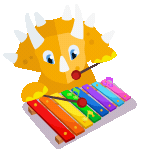Essentials of a Kid-Friendly French Study Plan
A solid study plan turns random “bonjour” moments into steady progress. Below you’ll find the core ingredients that make French practice fun, predictable, and effective for ages 2‑14.
1. Keep Sessions Short but Daily
Young brains learn best in bite‑size chunks. Aim for 10‑15 minutes on school days, 20 on weekends. One lesson from the Dinolingo French course pairs neatly with a quick offline activity, giving balanced input and output without overload.
| Age Band | Ideal Daily Minutes | Focus |
|---|---|---|
| 2‑5 Pre‑readers | 10 | Songs, movement, colour flashcards |
| 6‑10 Elementary | 15 | Phonics games, mini‑dialogues, counting |
| 11‑14 Middle | 20 | Story writing, role‑plays, grammar quests |
2. Mix the Four Skills Every Week
• Listening – Alphabet songs, short cartoons.
• Speaking – Call‑and‑response drills, stuffed‑animal interviews.
• Reading – Patterned picture books, label hunt around the house.
• Writing – Trace‑and‑copy sheets, sticker postcards.
Balance prevents skill gaps and keeps routines fresh.
3. Set SMART Milestones & Track Them
A plan without checkpoints feels endless. Build SMART goals: “Read 30 French sight words in 8 weeks” is specific and measurable. The Dinolingo curriculum map aligns lessons to CEFR A1‑A2, while the Parent Dashboard issues surprise badges every 100 words. Print badges and pin them on a progress wall so kids see success growing.
4. Embed French Into Existing Routines
• Breakfast – label cereal, spoon, bowl and say them aloud.
• Commute – count traffic lights or houses in French.
• Bedtime – recap one new word and sing “Au clair de la lune”.
Tiny habit hooks turn passive exposure into active recall.
5. Build a Flexible Weekly Template
| Day | Core Activity | Optional Booster |
|---|---|---|
| Mon | Dinolingo lesson + flashcard review | Colour scavenger hunt |
| Tue | Alphabet song & echo reading | Trace‑and‑copy sheet |
| Wed | Storybook reading | Stuffed‑toy interview |
| Thu | Numbers bingo | DIY board with stickers |
| Fri | Mini‑dialogue recording | Badge celebration dance |
| Sat | French cartoon episode | Outdoor object naming walk |
| Sun | Family quiz game | Free choice (song or craft) |
Swap activities as energy levels shift but keep the sequence so kids know what’s coming.
6. Reward Progress, Not Perfection
Gamified elements like surprise badges, streak counters, and printable certificates motivate without pressure. Celebrate effort: a new sound mastered, a shy greeting spoken, a page read aloud.
Final Thoughts
A kid‑friendly French study plan relies on consistency, variety, and visible wins. Mix daily micro‑sessions with Dinolingo’s structured lessons, sprinkle in real‑life routines, and watch confidence blossom week by week.
Source
Start Learning a New Language Today!
Best Language App for Kids.
7-day free trial. Then only $19/month. Cancel anytime.
